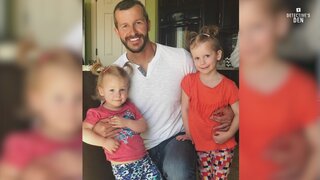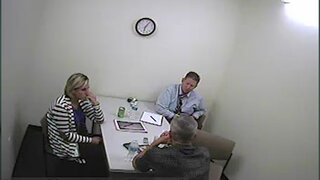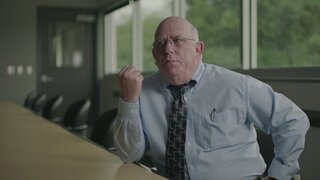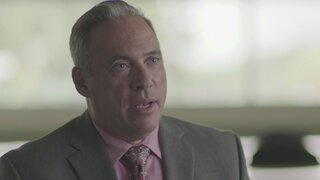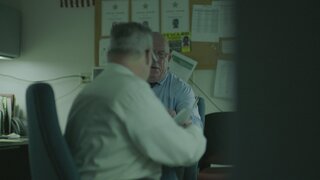Create a free profile to get unlimited access to exclusive videos, breaking news, sweepstakes, and more!
‘Discarded Like Trash’: Investigators Describe How They Found Shanann Watts And Her 2 Daughters
Several investigators who were present when Shanann Watts and her children, Bella and Celeste, were retrieved from an oil field say they are still disturbed to this day.
Investigators who worked on the Chris Watts case, one of the most publicized American murders in recent history, are now discussing the moment that Shanann and her children’s bodies were found and how the grim discovery profoundly affected them on Oxygen’s “Criminal Confessions," airing Saturdays at 6/5c.
Watts became one of the most infamous family murderers after he confessed last year to killing his pregnant wife, Shanann, and his two young daughters, Bella, 4, and Celeste, 3. After initially claiming his wife and daughters were missing on Aug. 13, 2018, Watts gave multiple emotional interviews pleading for the safe return of his family. And while he at first denied having anything to do with their disappearance and even at one point claimed Shanann killed his daughters before he killed her, he later admitted to slaying them all.
He marked up a photo of the oil field where he dumped them so that investigators could find the bodies, noting that Bella and Celeste were shoved into two separate oil tanks while Shanann was buried in a shallow grave nearby.
Investigators drove out to the oil field on Aug. 16 at 11 p.m. and excavated the dirt to find Shanann, a process that didn’t take long.
“Shanann was curled up, as if just thrown in,” David Maloney, Colorado Bureau of Investigation Laboratory Manager at the Denver Forensic Science Laboratory, said. “It was almost discarded like trash and then covered with dirt.”
He said typically when he does excavations, he’ll find a body laid out in a manner that’s more respectful.
As for Bella and Celeste, Maloney said he and others on the scene knew they wouldn’t be able to get their bodies that night.
“Getting them out of those tankers was a very complicated process,” he explained, adding that they had to wait until the next day to retrieve their bodies.
Kirby Lewis, Agent in Charge at CBI, noted that the next morning, investigators “arrived with this sense of dread because you know what the mission is. You know that you’re recovering the bodies of two small children.”
Investigators opened the hatchet of the tanks, which revealed openings so small they questioned whether or not the girls could even fit in there — that is, until they found some hair belonging to one of the girls, according to the show.
The tanks had to be drained so that the girls could be removed, a process that disturbed several people on scene. Dave Baumhover, who was the lead detective for Frederick Police on the Watts case, even told the Denver Post that he has been diagnosed with acute PTSD as a result of working on the case.
“What a horrible, horrible thought that is,” Michael Rourke, Weld County District Attorney, said on “Criminal Confessions. “Looking at those oil tanks and seeing the size of the hatch at the top where their little bodies were shoved through and then to have to pull them out of that oil, I wouldn't wish that upon my worst enemy.”
CBI agent Tammy Lee said Celeste was recovered first and that she was still in her nightgown, a detail that appears to upset her still.
“She had just gone to bed,” Lee said during the taping of “Criminal Confessions,” fighting back tears.
As for finding Bella in the second tank, it’s a memory that still haunts her: “I can’t get that image out of my head,” she said.
The callousness of the way they were discarded still baffles Maloney.
"Why would you separate the family like that?” Maloney said. “I don't see how somebody who loves their family could even possibly do something like that.”
Lewis said he’s been working homicides for 30 years and doesn’t “get emotional very often.”
However, in this case, he said, “I was not able to detach myself from this.”
